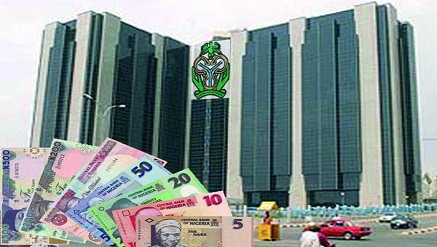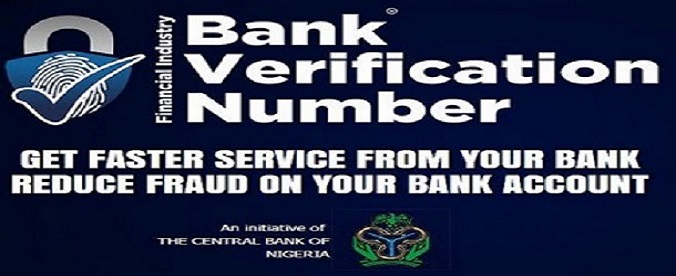E-Financial
CBN Barks, to Publish Names of Chronic Bank Debtors

Central Bank of Nigeria (CBN) said it would publish the names of chronic bank debtors and waxed worriedly about the growing amount of non-performing loans in the books of banks in the country.
The apex bank and banks, under the aegis of the Bankers Committee, have also decided to bar bad debtors from purchasing foreign exchange in the interbank foreign exchange market.
These were the major fallouts of the 321st meeting of the Bankers’ Committee in Lagos.
Mrs. Tokunbo Martins, director, Banking Supervision, CBN, at a press briefing after the said the central bank, in collaboration with the committee, had also decided to stop the serial debtors from buying foreign currencies at the official interbank foreign exchange market.
Also to be stopped from buying foreign currencies, according to her, are members of the board of directors of debtor companies as well as their subsidiary firms.
She recalled that the Asset Management Corporation of Nigeria had spent a fortune to buy toxic assets from the banks’ books in the past and that it was important to stage timely interventions to forestall a repeat of past mistakes.
Martins said, “So, it was decided that going forward, one thing that we will do is to stop them (chronic debtors) from getting access to foreign exchange. Another thing that we also considered doing is to publish the names of the borrowers that refuse to pay up. This is to ensure the continuous safety and soundness of the banking industry.
“It is not all debtors, it is the bad and chronic debtors; those ones that have deliberately refused to pay; those are the ones we are talking about. Now, in the industry we have a standard, we don’t want the NPLs to be more than five per cent of the total loan in the industry.
“The total loan in the industry is in the region of N13tn to N15tn. Right now, we have not reached the upper limit of five per cent, but we don’t want to get there. That is why we decided that we need to come out with this measure. Currently, the industry average of non-performing loans is at 3.3 per cent and we don’t want to get to five per cent; that is why we came up with this measure.”
She said the CBN, in collaboration with the Bankers’ Committee, had laboured to keep the banking industry safe and sound, and that there was a need to ensure the continued safety of the banks.
Emeka Emuwa, managing director and CEO Union Bank Plc, said the amount spent by naira debit cardholders overseas was rising fast and the banks were beginning to notice some arbitrate in the segment.
Consequently, the CBN and the Bankers’ Committee will slash the annual allowable drawdown for each bank customer, according to him.
The current annual allowable drawdown is $150,000 per customer but Emuwa did not specify the amount it would be slashed to.
He said, “We did find that in a number of cases, people were using the cards in manners that were not expected of them and there have been some arbitraging going on. So, in order to sustain stability, what was agreed by the committee was that the limits for the use of the naira debit cards would be reduced.
“As a customer, if you have a dollar account, you will still have unfettered access to it; but for naira debit accounts, the limits will be reduced to more judicious levels. This specifically refers to the use of these banks’ products abroad, because when they are used abroad, the merchants have to be settled.
“Even if it is the Automated Teller Machines, the service provider, Visa or MasterCard has to be settled in foreign currencies and we find that it is a drain on the foreign resources available to finance our industries. So, there is going to be a reduction in the annual allowable drawdown using naira debit cards abroad.”
Also speaking Mrs. Bola Adesola, managing director, Standard Chartered Bank Nigeria, said the foreign exchange market was safe and sound, and was already moving towards a near convergence of rates in the various segments.
This, she said, was as a result of the positive actions taken in the past by the central bank and the committee.
“As you are all aware, in the last couple of months, several methods have been taken by the CBN and the banks to try and attain some stability in the foreign exchange market. This has been achieved because the demand for foreign currencies by businesses has been continually met. All genuine demands for foreign currencies have been met by the CBN,” Adesola said.
Also at the press conference were Mr. Omar Hafeez, Chief Executive of Citibank Nigeria; and Alhaji Ibrahim Muazu, CBN Director of Corporate Communications.
E-Financial
Nigerian Banks End Years of Embargo, Resume Intl Transactions on Naira Cards

Nigerian banks have resumed international transactions on naira-denominated debit cards, marking a significant shift in banking operations for customers who rely on foreign payments.

This is coming nearly three years of suspension.
United Bank for Africa (UBA) and Wema Bank, in separate communications to their customers, announced the restoration of international payment services on their naira cards.
In a notice to its customers, UBA said the reactivation of international transactions on its premium naira cards aligns with its commitment to delivering improved and seamless banking experiences.
“We are pleased to inform you that all UBA Premium Naira Cards, including Gold, Platinum, and World variants, are now enabled for international transactions,” the bank stated.
“This means you can now use your Premium Naira Card for global payments — including online shopping, POS, and ATM transactions — with ease and flexibility. If you haven’t used your card recently, now is a great time to rediscover the convenience and prestige that comes with being a UBA premium cardholder.”
Similarly, Wema Bank announced that its customers can now make dollar payments on international platforms using their naira Mastercards.
“Your Wema Naira Mastercard just went global!” the bank said. “Now you can pay in dollars on all your favourite international platforms — Amazon, eBay, AliExpress, Netflix, Spotify, YouTube.”
The development marks a major relief for Nigerian customers who have had to rely on dollar cards or alternative payment methods since most banks suspended international usage of naira cards in 2021 due to foreign exchange scarcity.
E-Financial
Flutterwave Secures 20 more US Money Transmitter Licences

Flutterwave, Africa’s leading payments technology company, today announced the relaunch of its flagship remittance solution, Send App, across U.S. states following its newly acquired Money Transmitter Licences (MTLs).

This comes after Flutterwave secured 20 additional MTLs in the U.S., adding to the 14 licenses the brand has held since 2023.
Altogether, this achievement raises Flutterwave’s total number of direct licenses to 34, allowing the company to operate across many U.S. states and territories without partners or intermediaries.
Users in the U.S. can now send money to Nigeria, Ghana and Egypt, unlocking new remittance corridors that were previously unavailable.
Alongside this expansion, the onboarding process has been streamlined with a quick ID check, making it faster and easier for new users to get started.
Additional improvements include optimised payment support for US-issued Visa and Discover cards, enhanced security measures to safeguard transactions and maintain compliance, and improved in-app flows for a simpler, more efficient sending experience.
This return also highlights Flutterwave’s commitment to delivering a seamless, secure, and regulatory-compliant user experience for all Send App customers in the U.S. Users can now send money from DC, Georgia, Maryland, North Carolina, Michigan, South Carolina, Tennessee.
Other U.S. states and territories where Send App by Flutterwave supports outward remittances include Alaska, Arizona, Arkansas, Delaware, Idaho, Illinois, Indiana, Iowa, Louisiana, Maine, Minnesota, Mississippi, and Missouri, Nebraska, New Hampshire, New Mexico, North Dakota, Oklahoma, Oregon, Puerto Rico, Rhode Island, South Dakota, Utah, Washington, West Virginia, Wisconsin, and Wyoming.
Commenting on the relaunch, Olugbenga “GB” Agboola, Flutterwave Founder and CEO, said, “By expanding our reach and enhancing our services, we are empowering millions of Africans in the U.S. to maintain strong financial ties with their home countries, support their families, and contribute to economic development across the continent. Additionally, we are staying true to our core mission of bridging Africa with the global economy and vice versa.”
Earlier this year, Flutterwave integrated Swap into Send App for seamless FX transactions and strengthened its services in Ghana by securing approval for inward remittance from the Bank of Ghana.
E-Financial
Court Affirms NIBSS Authority to Manage BVN

Federal High Court in Abuja on Friday affirmed the authority of the Nigeria Inter-Bank Settlement System (NIBSS), to manage the Bank Verification Number (BVN), database across the country, in line with the Central Bank of Nigeria (CBN), Act and other relevant banking laws.

This is according to a judgment delivered by Justice James Omotosho on Friday.
Wolemi Esan, senior advocate of Nigeria, NIBSS’s counsel, and Kofo Abdulsalam-Alada, lead counsel for the CBN, among others, had sought a restraining order to prevent any institution in Nigeria from challenging the agency’s statutory authority to maintain and manage the BVN database.
This comes as NIBSS had alleged that Digital Rights Lawyers Initiative filed multiple suits, either directly or through proxies, challenging its authority to manage the BVN database and claiming that such management violates constitutional privacy rights.
However, Justice Omotosho, delivering his judgment, said the BVN does not infringe on the constitutional right to privacy.
“The initiative does not infringe on the constitutional right to privacy but rather serves as a necessary tool for safeguarding public interest and enhancing financial security.
“NIBSS has the power to manage the BVN,” the judge said, citing relevant CBN laws.
“The court grants the reliefs of NIBSS as prayed,” he stated.

 Telecom3 days ago
Telecom3 days agoMTN Nigeria Debuts Game-Changing CPaaS Platform at NextNow Forum

 E-Financial2 days ago
E-Financial2 days agoCourt Affirms NIBSS Authority to Manage BVN

 News3 days ago
News3 days agoAMCON Confirms ₦100Bn Sale of Ibadan DisCo Amid Legal Disputes

 E-Business3 days ago
E-Business3 days agoDomain of Deception as Attackers Deploy Spyware Under Guise of Legal Threats

 E-Financial3 days ago
E-Financial3 days agoNAICOM Issues New Licenses to SanlamAllianz Life, General Insurance

 Telecom2 days ago
Telecom2 days agoMTN, 9mobile Commence Ground-breaking National Infrastructure Partnership

 E-Financial3 days ago
E-Financial3 days agoGTCO to Become First Nigerian Bank to List on London Stock Exchange

 Broadcasting3 days ago
Broadcasting3 days agoIFC, AfDB Collaborate with EbonyLife Media to Explore Supporting the African Film Industry to Drive Job Creation






















